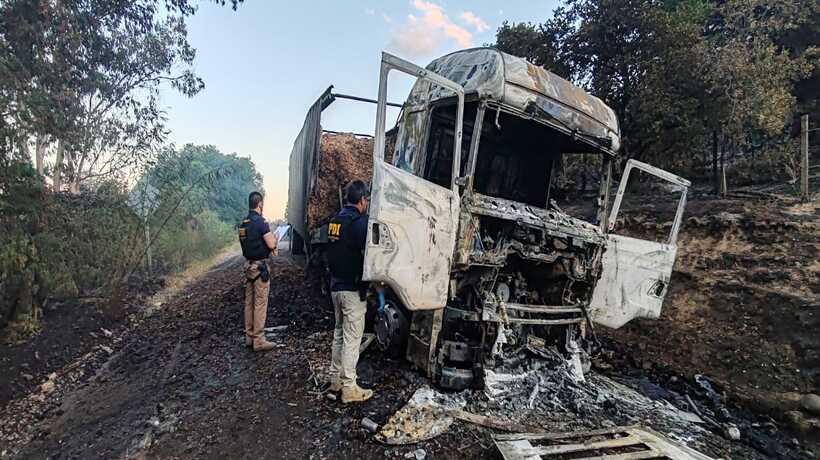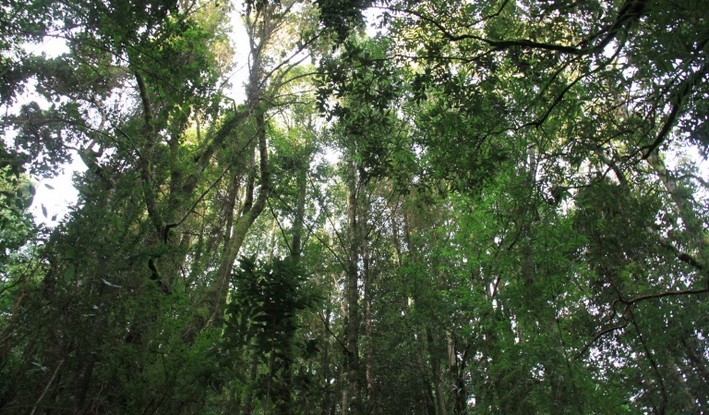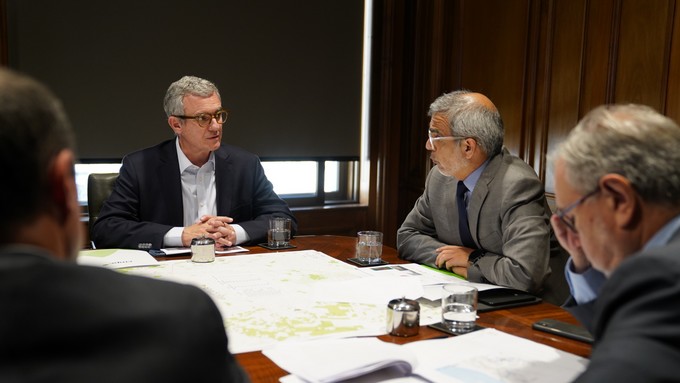Municipalities of Biobío Request Acceleration of Wildfire Law Processing
- Similarly, local governments emphasized the importance of having the law already in effect for the 2024-2025 wildfire season. The proposal is close to completing a year of processing in Congress.
The Wildfire and Rural Fire Law has been in Congress for nearly a year. Specifically, after approval in the Chamber of Deputies, the initiative is still undergoing a second constitutional review in the Senate. This comes as regional authorities begin early preparations for the upcoming wildfire season.
In this context, mayors of the Biobío Region stressed the need for swift approval to have the regulations in place for the 2024-2025 wildfire season, thereby avoiding a repeat of the 2023 events in the area.
"We value this bill, which, if approved, will provide concrete tools to protect communities and prevent tragedies like those we faced in the 2022-2023 season, which could recur or become even more catastrophic in the future," said Álvaro Ortiz, president of the Association of Municipalities of the Biobío Region (Amrbb) and mayor of Concepción.
Ortiz also addressed details of the proposal, which has been in Parliament for nearly a year, stating, "We’ve seen that it includes preventive plans, mandatory firebreaks, and significant fines for those who fail to carry out preventive work—including municipalities, as it strengthens the obligation to improve land-use planning and introduces stricter regulations for private forestry activities, which is no small matter."
The association president also highlighted requirements for local governments, such as mandatory firebreaks: "Something we’ve proactively done from day one to prevent larger disasters, establishing interface zones and action protocols to minimize fire spread toward communities."
"Another key aspect is land-use restrictions, which will promote native tree planting to restore affected areas—measures we mayors strongly support," Ortiz concluded.
The law includes the implementation of prevention plans, mandatory firebreaks, and fines for non-compliance. Its main goal is to strengthen wildfire and rural fire prevention through improved land-use planning and stricter forestry regulations.
It also proposes a preventive and coordinated approach, based on technical criteria and adapted to local conditions, with emphasis on high-risk or critical areas.
The law mandates firebreaks and establishes rural-urban interface zones, empowering Municipal and Intermunicipal Regulatory Plans to set related standards. It applies not only to large cities but also to intermediate and rural areas.
Additionally, it restricts land-use changes in fire-affected areas to promote vegetation and forest recovery, with exceptions like social housing projects.
Lawmakers
Regional legislators addressed the bill’s progress and its importance for wildfire prevention, especially ahead of peak fire season.
"The bill is currently in the Senate for review before final approval. With fire season approaching, we urge expedited processing to ensure the law is in effect," said Karen Medina (PDG), Deputy for District 20 and member of the Lower House’s Fire Commission.
Meanwhile, María Candelaria Acevedo (PC), Deputy for District 20, insisted on accelerating the bill: "We need a new wildfire law, especially given our region’s forest-dependent economy and the devastating fires we’ve witnessed."
Acevedo added, "The new law must strengthen forest management and land-use planning tools, as poor planning has fueled mega-fires. We must update risk-zone criteria based on scientific evidence to implement targeted measures."
Regarding the bill’s progress, Senator Enrique Van Rysselberghe (UDI) explained: "It’s in the Senate Agriculture Committee for its second constitutional review, undergoing general study and voting before reaching the Senate floor. If approved, it returns to committee for specific amendments, then back to the Senate for final wording approval."
Source:diarioconcepcion.cl

















